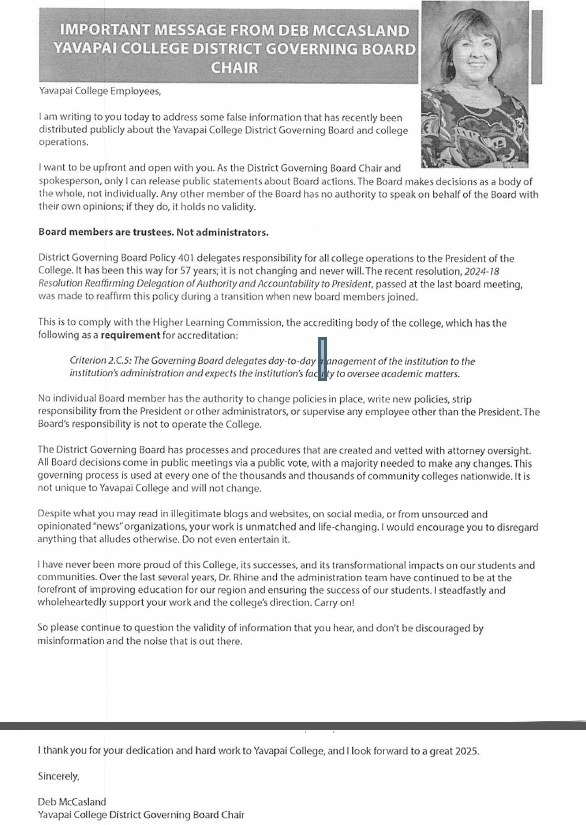A decade-long ceremony honoring Native American students is canceled, and Native American clubs like MCC’s Inter-Tribal Student Organization face dissolution. Tribal leaders argue the relationship of Native American Tribes and the federal government is misunderstood and say the college erred in its decision
 Arlyssa D. Becenti, writing in the Wednesday, March 12 edition of the Arizona Republic, reported that the Native American Convocation scheduled for May was cancelled at Mesa Community College (MCC) because of the perceived DEI mandate issued by President Donald Trump. The event was to be a celebration of the academic achievements of Native American students attending Mesa Community College.
Arlyssa D. Becenti, writing in the Wednesday, March 12 edition of the Arizona Republic, reported that the Native American Convocation scheduled for May was cancelled at Mesa Community College (MCC) because of the perceived DEI mandate issued by President Donald Trump. The event was to be a celebration of the academic achievements of Native American students attending Mesa Community College.
According to the article, Native American students from MCC and the nine other Maricopa County community colleges “received troubling news.” Due to actions by President Donald Trump, their Native American Convocation would be canceled. Additionally, Native American clubs, likely including MCC’s Inter-Tribal Student Organization and others, would be dissolved.
“I am incredibly disappointed to learn that the 2025 Maricopa County Community College District’s American Indian Convocation has been canceled,” Gila River Indian Community Governor Stephen Roe Lewis said in a news release. “This decision concerns me deeply, because it shows fundamental misunderstanding of the federal-tribal relationship which is based on political, not racial status. Today I am calling on MCCCD to immediately correct this error in interpreting the federal Executive Order and to allow the convocation to proceed.”
Maricopa Community Colleges have traditionally held a smaller ceremony to honor Native American students from all 10 community colleges in the Maricopa Community Colleges District. This year, that ceremony, along with similar convocations for other diverse student groups, has been canceled.
Neither Maricopa Community Colleges nor the county community college district responded to The Arizona Republic’s request for comment.
The issue of racial and political classification among Native Americans gained attention after Trump’s Education Department issued a memo on February 14. The memo claimed that Supreme Court decisions prohibit treating students differently based on race to achieve goals like diversity, racial balancing, social justice, or equity. This raised concerns among Navajo leaders and their attorneys.
“The letter doesn’t mention federal funds that are provided to Indian tribes and tribal organizations are not based on race,” said Chris Schneider, principal attorney for the Navajo Department of Justice. “It’s longstanding, its federal case law, you have Morton v. Mancari, which is a United States Supreme Court case … that determine that Indian isn’t always per se going to be a classification according to race. Instead, based upon the history of the United States and Indian tribes, it’s more political classification.”
Many legal experts believe the Trump administration ignores legality, precedent, the Constitution, and tribal treaties. Mel Wilson of the National Association of Social Workers notes this follows the vision of Project 2025. The dismantling of DEI efforts marks a dramatic shift, as colleges and institutions that once honored First Peoples with land acknowledgments have abruptly stopped doing so.
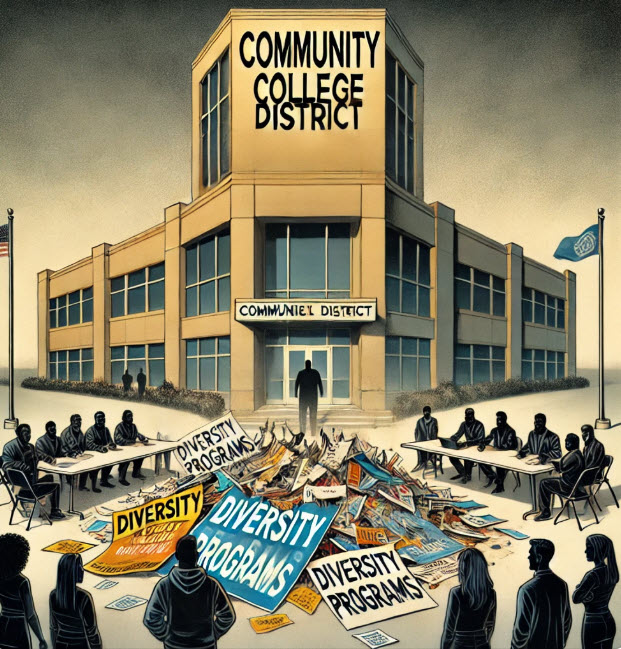
 Federal judge Deborah Boardman on Monday, February 24, 2025 issued a temporary restraining order saying disclosure of the education department’s sensitive personal information to DOGE affiliates is irreparable harm that money damages cannot rectify.” She also said the Office of Personnel Management can’t disclose the information.
Federal judge Deborah Boardman on Monday, February 24, 2025 issued a temporary restraining order saying disclosure of the education department’s sensitive personal information to DOGE affiliates is irreparable harm that money damages cannot rectify.” She also said the Office of Personnel Management can’t disclose the information. COMMENTARY: The actions by the Trump administration’s newly created Department of Government Efficiency (DOGE) may have a significant impact on the operations of Yavapai Community College. There is concern because DOGE is already taking away millions of dollars in existing grants and contracts from various educational institutions. In addition to this concern, the Trump administration has mandated that educational institutions eliminate anything that directly or indirectly might be linked to what are commonly called “Diversity, Equity and Inclusion (DEI)” programs or projects.
COMMENTARY: The actions by the Trump administration’s newly created Department of Government Efficiency (DOGE) may have a significant impact on the operations of Yavapai Community College. There is concern because DOGE is already taking away millions of dollars in existing grants and contracts from various educational institutions. In addition to this concern, the Trump administration has mandated that educational institutions eliminate anything that directly or indirectly might be linked to what are commonly called “Diversity, Equity and Inclusion (DEI)” programs or projects.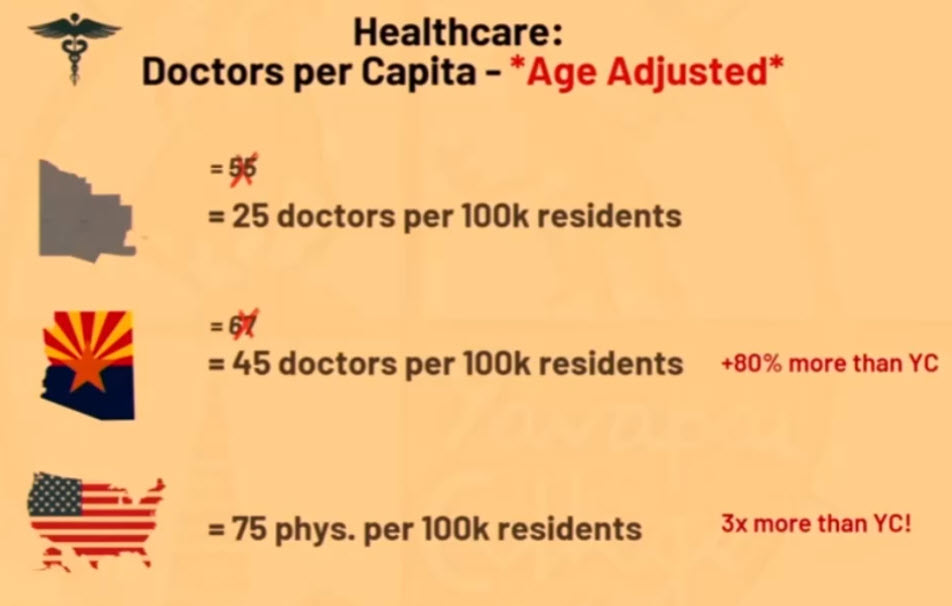
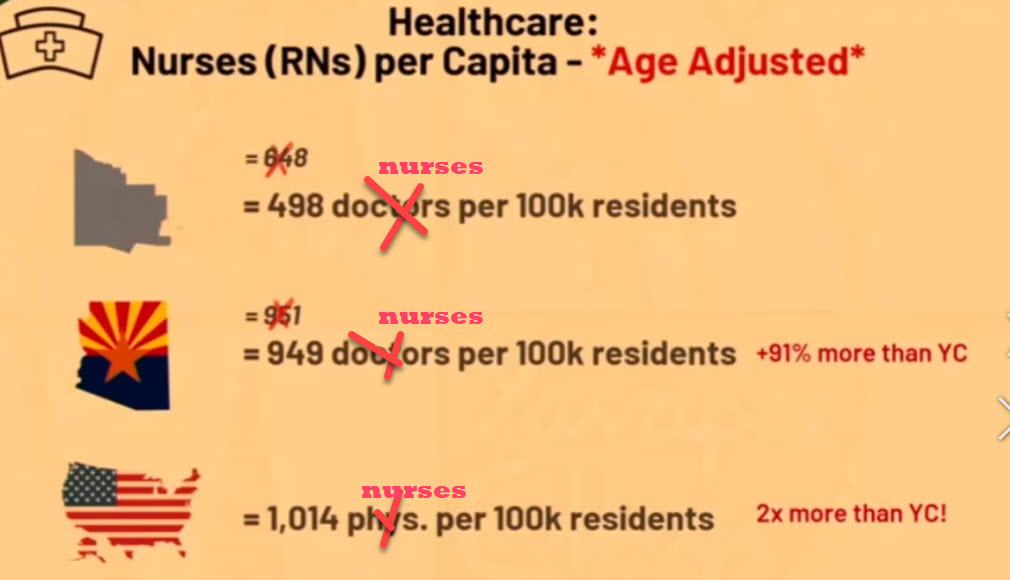
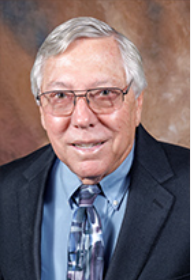
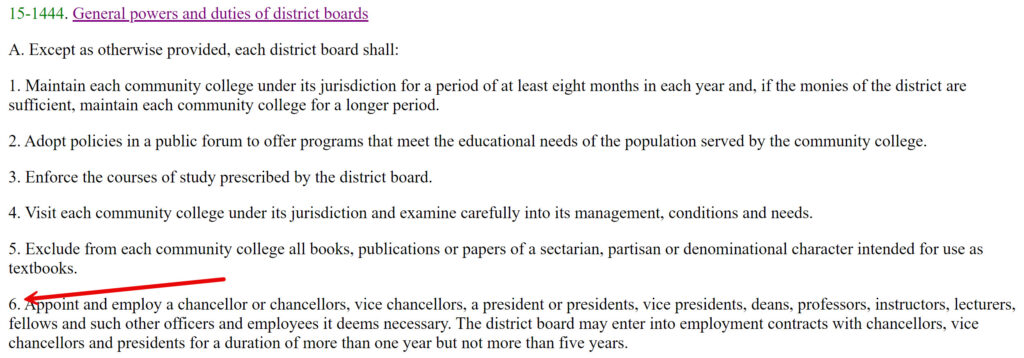
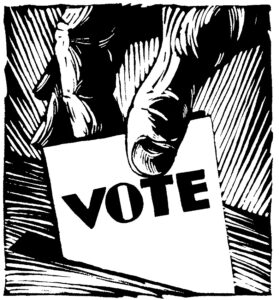 Deb McCasland was re-elected as the Yavapai Community College District Governing Board Chair by a 3-2 vote, defeating Third District Representative Toby Payne. In the same meeting, District 5 Representative Steve Bracety was chosen as Board Secretary. The election occurred during the District Governing Board’s workshop January 14. McCasland will have served as chair for seven years when she completes this term in 2027.
Deb McCasland was re-elected as the Yavapai Community College District Governing Board Chair by a 3-2 vote, defeating Third District Representative Toby Payne. In the same meeting, District 5 Representative Steve Bracety was chosen as Board Secretary. The election occurred during the District Governing Board’s workshop January 14. McCasland will have served as chair for seven years when she completes this term in 2027.
